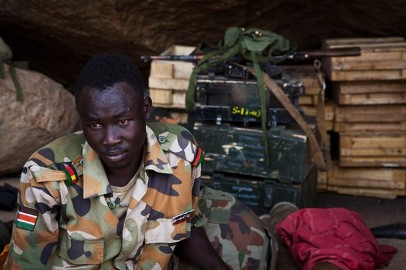SPLM-N rebels ban use of anti-personnel mines
August 29, 2013 (LONDON) – The Sudan People’s Liberation Movement- North (SPLM-N) on Thursday committed to ban the use of anti-personnel (AP) mines and destroy all its stockpiles, announced a Geneva-based advocacy group.

In line with the signed deed “the SPLM-N agrees to prohibit the use, production and transfer of AP mines, to cooperate in humanitarian mine action activities and to destroy its stockpiles”, it said.
The rebel group which controls different areas in the Blue Nile and South Kordofan states, accepts that Geneva Call and other independent groups “will monitor and verify its compliance with the signed commitment”.
“In compliance with our pledge, we will destroy all AP mines in our possession as soon as possible. These mines were captured during military operations”, Al-Hilu said following the signing of the commitment.
“We are also ready to cooperate in other fields of humanitarian mine action and call upon the international community to assist us in this endeavour”, he added.
AP mines have reportedly been used in the two states, where the rebel group has been fighting against the Sudanese army (SAF) and government militias since June 2011.
Recent press reports mentioned the death of civilians in the areas surrounding Abu Kershola in South Kordofan, where the two parties clashed during April and May of this year.
Geneva Call president Elisabeth Decrey Warner commended the SPLM-N for its humanitarian commitment, underlining that “every time a mine is destroyed or not laid, innocent lives are saved”.
Geneva Call said that they are also in dialogue with the SPLM-N on other humanitarian issues, notably the protection of children in armed conflict.
Since 2000, Geneva Call has been engaging armed non-state actors to seek their compliance with international humanitarian norms.
The deeds of commitment are a set of documents that mirror international treaties and allow armed non-state actors to declare their adherence to humanitarian standards, as these actors cannot sign international treaties.
(ST)
